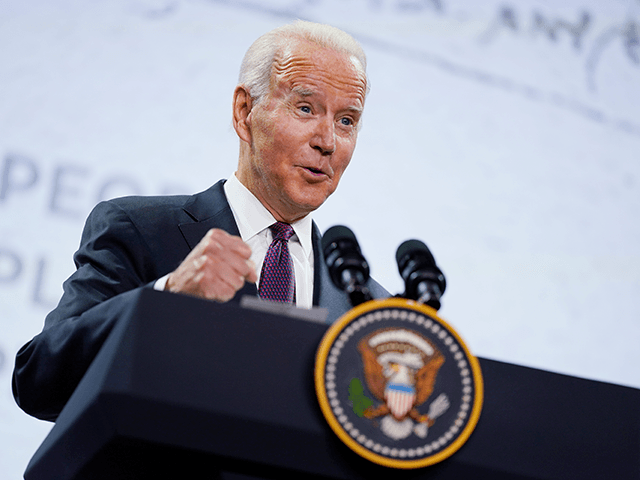A New York Times reporter asked President Joe Biden to raise gasoline prices on middle-class people around the world to reduce carbon emissions and curtail climate change.
Speaking with reporters at the G-20 Summit on Sunday, Jim Tankersley of the New York Times asked the president if working-class people should “pay more” for gasoline in the pursuit of lowered fossil fuel consumption.
“On the question of oil prices, economists say that when you raise the price of something, people will consume less of it, so why not allow even middle-class people around the world to pay more for gasoline in the hope that they would consume fewer fossil fuels and emit less?” Tankersley asked.
Tankersley’s question prompted a nervous grin from the president, knowing full well that such an initiative would be political suicide.
“Well, because they have to get to work,” Biden responded. “They have to get in the automobile, turn on the key, get their kids to school. School buses have to run. That’s the reason why, you know that. The idea that there is an alternative to walk away from being able to get in your automobile is just not realistic. It’s just not going to happen.”
The president noted that gas prices above $3.35 a gallon have a tremendous economic impact on the middle class.
“By the way, when the cost of a gallon of gasoline gets to above $3.35 a gallon, it has a profound impact on the working-class families just to get back-and-forth to work,” he said. “So I don’t see anything inconsistent with that.”
According to Bloomberg, the national average daily price for a gallon for regular unleaded gasoline now stands at a whopping $3.40, a full $1.26 more than last year’s average around this time ($2.14). Energy Secretary Jennifer Granholm blamed the intense spike on OPEC and the pandemic.
“That oil market is controlled by a cartel,” Granholm said on NBC’s Meet the Press on Sunday. “That cartel is OPEC. OPEC controls more than 50% of the petroleum supply and more than 90% of the petroleum reserve.”

COMMENTS
Please let us know if you're having issues with commenting.